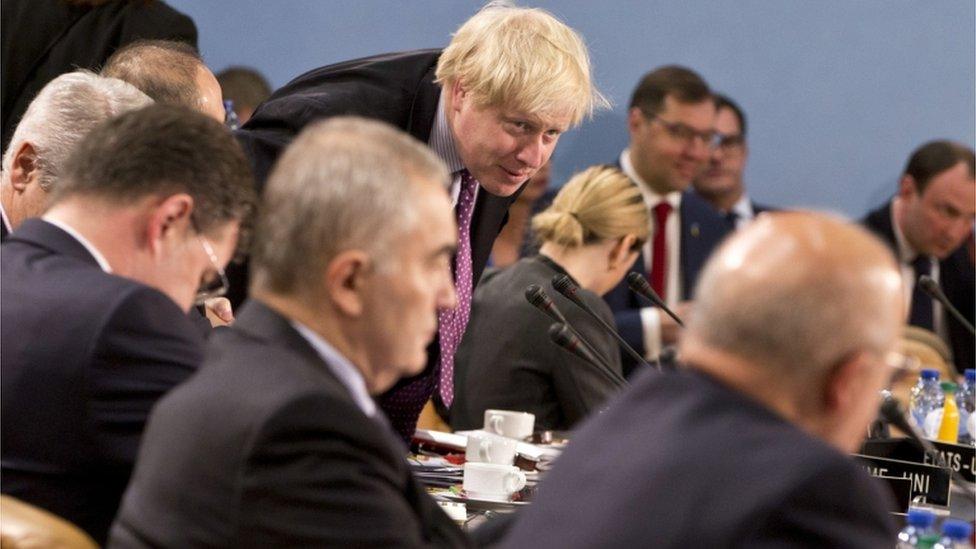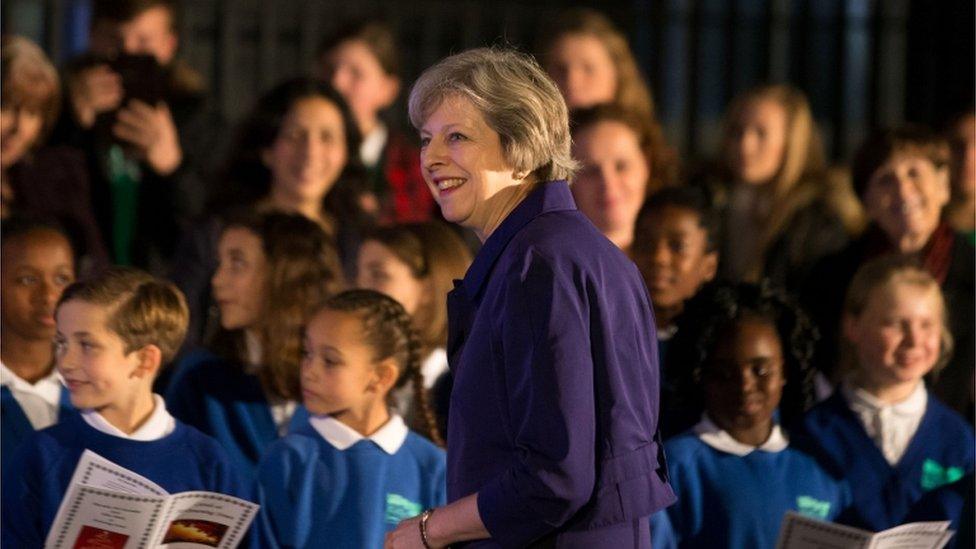Is Boris Johnson in bother ?
- Published

As foreign secretary, Boris Johnson is meant to be the consummate diplomat
Downing Street slapped him down immediately.
One colleague of Theresa May's suggested she would need to be "peeled off the ceiling" in rage.
Another senior MP told me "he's used up all of his lives".
A former minister said: "He can't go on like this - it's getting very difficult."
Westminster tonight has even been able to engage in one of its favourite parlour games - guessing who'll be next, if, as some are suggesting sooner rather than later, a member of the Cabinet has to depart.
Johnson's Saudi comments 'not UK view'
In traditional terms, it is impossible for Boris Johnson to behave in the way he has been doing.
Criticising one of the UK's strategic allies when the PM has been investing personally in that relationship is the latest in a series of overly candid comments from the man who is meant to be the consummate diplomat.
Except - this is Boris Johnson, and it is 2016, when politics itself is not behaving in a way any of the traditional rules suggest.
First off, although it was a surprise, there are good reasons why Theresa May gave him the job in the first place.

Theresa May surprised many when she appointed Boris Johnson as foreign secretary
As one foreign diplomat suggested, he is not someone who could ever be ignored - potentially useful at a time when the UK's profile could recede.
Then, as a magnet for attention, far better in theory to have him in her gang than causing trouble outside.
And, most importantly perhaps, in what he said about Saudi Arabia or indeed on other occasions when he has spoken loosely, few suggest that Boris Johnson is doing anything other than saying what he believes to be true and what others think too.
And in 2016, when the public has little appetite for being spun, what is the problem with a politician being a little blunt, if they are telling the truth?
Genuine concerns
Of course by doing that he is also breaking the conventions of diplomacy. And there are genuine concerns about the impact that will have on the UK's ability to deal with foreign countries.
If he is continually criticised by Downing Street, what is the point of having him in the job, if his word can't be taken as a true representation of the UK government's position?
But, just as there were legitimate political reasons to give him the job, so too there are legitimate reasons to preserve him.

Mr Johnson was on the winning "Leave" side during the EU referendum. Theresa May was not.
One member of the cabinet suggested tonight it was more likely he'd get fed up with being criticised and resign than the prime minister get rid of him.
"She'll want to keep him," they said, as a prominent Brexiteer and a prominent member of the cabinet.
And it's also worth remembering that he is not the only member of the government who has been talking out of turn.
One feature of the May government is a focus on communicating very little. The challenges of Brexit mean Number 10 would prefer silence than endless political briefings.
Yet in the last week the chancellor, the Brexit secretary and, most dramatically, the foreign secretary have all variously made comments that went against the Number Ten hopes of avoiding drama.
Ministers 'gagged'
And there is frustration in government among some ministers that they feel gagged by Downing Street.
There wasn't much evidence of it tonight, but there may be grudging sympathy for Mr Johnson after his public dressing down.
Indeed the chairman of the foreign affairs select committee told the BBC Number Ten had been "too sensitive".
But perhaps we are seeing a wider change too.
Collective responsibility
In times gone by, the tight rules of collective responsibility would have made Boris Johnson's position already impossible.
But maybe, after David Cameron tore those up in the referendum, those days will never fully return.
One former senior minister told me that was one of the biggest mistakes in the campaign that David Cameron made.
In their view, it was certainly a factor in losing the referendum.
But beyond that result, perhaps that decision will have consequences we are only just starting to see.
Yet another effect of the referendum that has changed British politics for good.